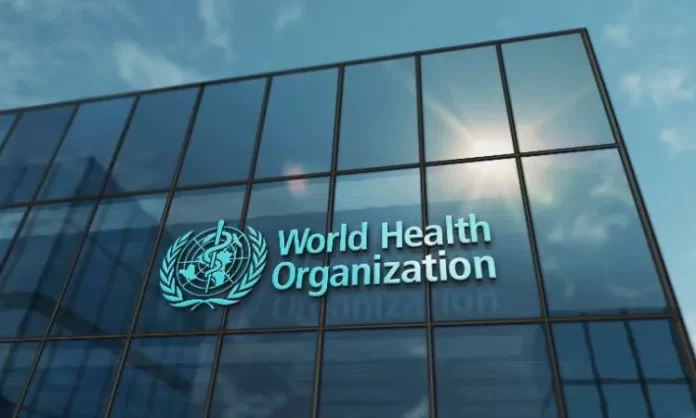In an unprecedented move, President Donald Trump signed an executive order withdrawing the United States from the World Health Organization (WHO), citing dissatisfaction with the organization’s handling of global health crises—particularly the COVID-19 pandemic. The decision, made in July 2020, sent shockwaves through the global health community, raising concerns about the future of international disease control, pandemic preparedness, and U.S. global leadership in health governance.
Foreign policy and global health are deeply intertwined, and this withdrawal marked a significant shift in America’s approach to global health diplomacy. The WHO, a specialized agency of the United Nations, has played a crucial role in responding to disease outbreaks, promoting public health research, and coordinating international vaccination programs. With the U.S. historically being one of WHO’s largest funders and most influential partners, its sudden departure had far-reaching consequences.
So, what does this decision mean for the world? What are its implications for U.S. public health, diplomacy, and the future of global health governance? Let’s break it down.
The Role of WHO in Global Health
The World Health Organization was founded in 1948 with a simple but ambitious mission: to promote global health, prevent diseases, and respond to health emergencies. Over the decades, it has been instrumental in tackling major global health challenges, including eradication of smallpox , fight against polio, coordinating responses to health crises, global vaccination programs.
The WHO relies on contributions from its member states to function effectively. Before its withdrawal, the United States was the largest financial contributor, providing €383.80–€479.75 million annually, or roughly 15% of the WHO’s total budget. This funding helped sustain essential programs in maternal health, infectious disease surveillance, and emergency response systems.
Trump’s Decision: Political Motivations and Justifications
President Trump justified the withdrawal by accusing the WHO of mishandling the COVID-19 crisis and favoring China in its early response to the pandemic. His administration argued that the WHO failed to act swiftly when the coronavirus first emerged in Wuhan, China, and that it did not hold China accountable for a lack of transparency.
This decision was part of Trump’s broader “America First” foreign policy, which emphasized reducing U.S. commitments to international organizations and reassessing America’s role in global governance. The move also came amidst rising U.S.-China tensions, with Trump frequently blaming China for the pandemic and viewing the WHO as complicit in Beijing’s alleged cover-up.
The withdrawal was highly controversial and faced strong opposition from public health experts, global leaders, and even members of Congress, who warned that it would undermine global pandemic preparedness and weaken America’s influence in global health diplomacy.
Consequences for Global Health Governance
The U.S. departure from the WHO had immediate and long-term repercussions for global health governance:
1. Financial Fallout
The WHO lost one of its biggest funders, which put several critical health programs at risk, particularly in developing countries reliant on WHO support for vaccination and disease control.
It created a funding gap that other nations, including China, sought to fill, potentially shifting the balance of influence within the organization.
2. Disruptions to Global Health Programs
The U.S. withdrawal jeopardized disease surveillance systems that monitor global outbreaks, potentially delaying responses to future pandemics.
Global vaccination campaigns, such as those for polio and measles, faced uncertainty due to funding cuts.
Research collaborations and public health initiatives involving the U.S. and WHO scientists were disrupted.
3. An Influence Vacuum in Global Health Leadership
• With the U.S. stepping back, China and other nations sought to expand their influence within the WHO and other global health institutions.
• The decision also weakened multilateral efforts to tackle health crises, as it signaled a retreat from global cooperation in favor of unilateral decision-making.
Impact on U.S. Public Health and Diplomacy
Beyond its international repercussions, Trump’s decision also had domestic consequences for the U.S.:
• Weakened pandemic preparedness: Without WHO collaboration, the U.S. lost access to critical global health intelligence that could help prevent or mitigate future outbreaks.
• Scientific isolation: U.S. researchers and public health officials lost key partnerships with global experts, limiting cross-border collaboration on infectious disease research.
• Diplomatic damage: Many U.S. allies, including European nations and Canada, condemned the decision, viewing it as a reckless abandonment of global responsibility.
• Reversal by the Biden Administration: Recognizing these setbacks, President Joe Biden rejoined the WHO on his first day in office (January 20, 2021), signaling a return to global health cooperation.
The Bigger Picture: Foreign Policy and Global Health Are Inseparable
The COVID-19 pandemic underscored an undeniable truth: health security is national security. No country can effectively combat pandemics in isolation. Global cooperation is essential to:
• Detect and contain outbreaks before they spread internationally.
• Ensure equitable access to vaccines and medical supplies.
• Prevent future pandemics through coordinated research and surveillance.
The U.S. withdrawal from WHO was a case study in how political decisions can reshape global health governance, for better or worse. While Trump framed his decision as holding the WHO accountable, critics argue that it weakened the very institutions needed to prevent the next global health crisis.







